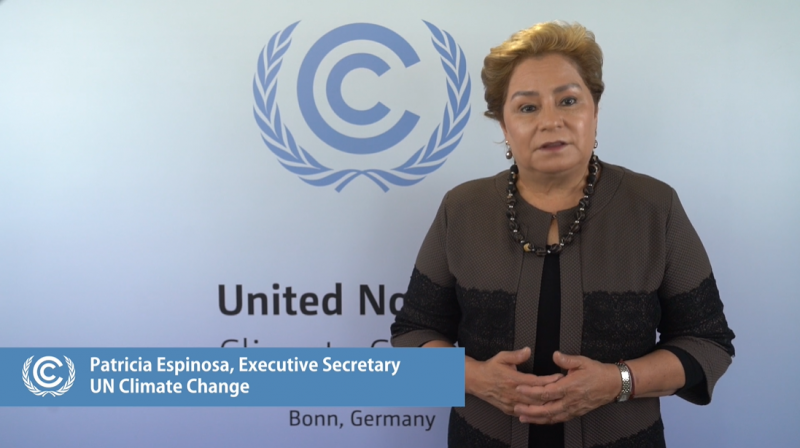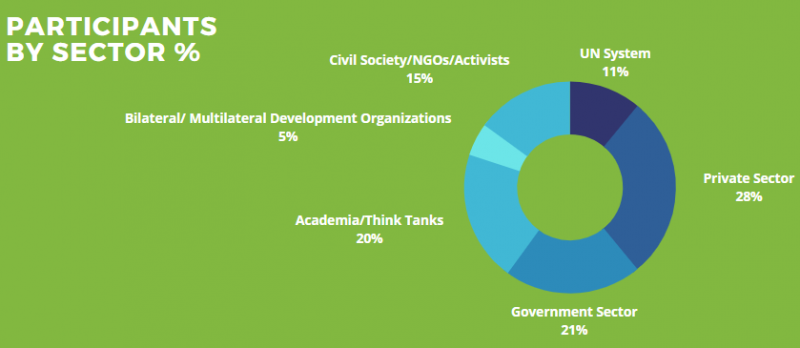A thousand hands join together for record-breaking climate change course
A record 500 participants will take part in the joint United Nations System Staff College (UNSSC) and UN Climate Change, “The Paris Agreement on Climate Change as a Development Agenda” (PACCDA) course on 31 May. The cohort – UNSSC’s largest yet for any course – comes from 290 cities, 108 country duty stations, and represents 105 different nationalities.
As the world prepares for the pandemic recovery, and discussions on tackling the climate emergency unfold at COP26, the 2021 PACCDA course seeks to inspire agents of change for climate action.
In her welcome to participants, Patricia Espinosa, Executive Secretary to the UN Climate Change states:
“As we actively address a global health emergency, we cannot underestimate the ongoing impacts of climate change. The climate crisis did not disappear with the arrival of COVID-19 and remains humanity’s greatest long-term threat to its long-term survival on this planet. The science is clear: we are in a climate change emergency! Addressing it is not a choice, it is the reality we face.”

The cohort is particularly diverse with 55 per cent female and 45 per cent male participants from all sectors of work – private sector (28 per cent), government sector (21 per cent), academia/think tanks (20 per cent), civil society (15 per cent), UN system (11 per cent) and bilateral/ multilateral organizations (5 per cent).

Natalia Galat, Learning Portfolio Manager at UNSSC said: “The Knowledge Centre for Sustainable Development is excited to create a virtual space for participants from different regions– Asia and the Pacific (30 per cent), Africa (24 per cent), Western Europe (19 per cent), Latin America and the Caribbean (12 per cent), Eastern Europe and Central Asia (8 per cent), North America (4 per cent) and Arab States (3 per cent). I look forward to us unlocking new ideas, and sharing knowledge on the interlinkages between climate change and sustainable development, through the lenses of the 2030 Agenda and the Paris Agreement”

A six-week course, PACCDA is offered for free through a generous contribution from the German Federal Government. Its uniqueness lies in the tailored facilitation offered by UNSSC expert learning facilitators who enhance the learning experience through peer-to-peer exchange, modern and engaging learning methodologies and interactive webinars.
In addition to self-paced material, assignments, and case studies, participants are expected to engage in weekly structured learning, and robust discussions with peers and renowned experts and speakers. The impressive lineup of speakers and experts come from various UN entities and partner organizations.
It includes:
- - Niclas Svenningsen, Global Climate Action Manager, UNFCCC
- - Julia Wolf, Natural Resources Officer- Climate Change Adaptation, FAO
- - Inkar Kadyrzhanova, Regional adviser on gender and climate change, UN Women
- - Merlyn Van Voore, Special Advisor on Climate Change to the Executive Director of UN Environment Programme, UNEP
- - Amir Hooshang Delju, Senior Scientific Officer, Climate Services Branch, WMO
- - Stefanos Fotiou, Director, Environment and Development Division, UN ESCAP
- - Rabia Ferroukhi, Director of Knowledge, Policy and Finance Centre, IRENA
- - Brice Boehmer, Environment and Climate Governance Integrity Lead, Transparency International
- - Dina Ionesco, Head of Division, Migration, Environment and Climate Change, IOM
- - Kirsten Dunlop, Chief Executive Officer, EIT Climate-KIC
- - Youssef Nassef, Director of the Adaptation Division, UNFCCC
- - Romeo Bertolini, Deputy Director, Head Bonn Office, NDC Partnership
- - Malini Mehra, FRSA| Chief Executive, GLOBE Secretariat
- - Juan P. Hoffmaister, Multilateral Governance Manager, Office of Governance Affairs, Green Climate Fund (GCF)
The PACCDA course, now in its third year, has been a good starting point for change makers who want to gain a holistic understanding of the interlinkages and interdependencies between sustainable development and climate change for policy choices towards low-carbon and climate-resilient sustainable development.
Samir, Egypt from the 2020 cohort said: “I have been working in climate change for a long time now (since 2002), including all related technical work and global negotiations, the cross-cutting interaction between climate change and sustainable development was not very clear for me before joining this course and the exchange views with other colleagues, thank you!”
Aranzazu, Spain from the 2020 cohort said: “Out of many different online courses I have taken so far, this one has the best layout, more intuitive features to navigate and follow which makes a great experience simple to follow. I must say that I am extremely impressed by the content: the weekly speakers are so interesting, focused and knowledgeable that it is overwhelming for me as a beginner in the topic. The amount of information and the reasoning is impressive and adequate; the recaps and the way you are conducting this course makes it not only very friendly but also extremely pleasant, and the participation of the colleagues through comments and questions perfectly complements the content provided. Thank you!”
Follow the conversation on social media using the #PACCDA2021 #Learn4Climate and #UNSSCforClimateAction hashtags.